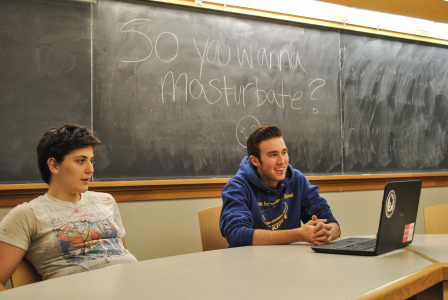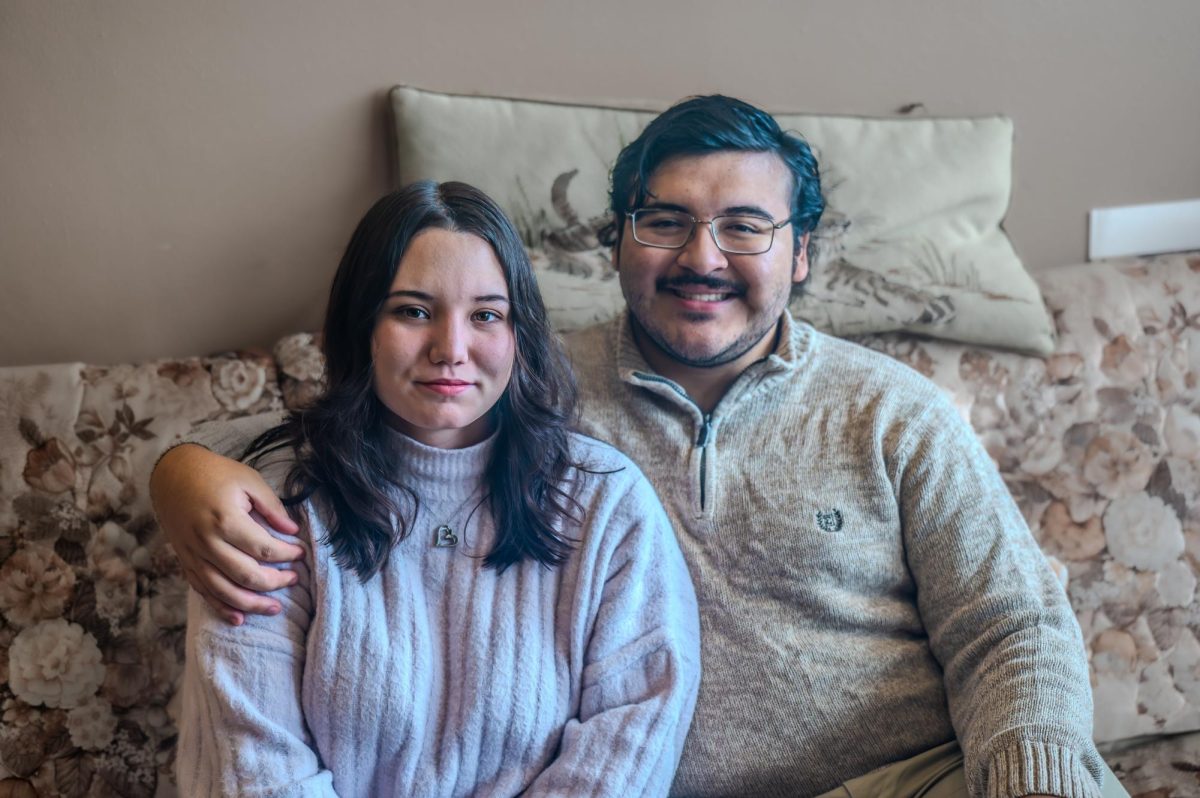This week, Grinnellians practiced loving themselves. Self-Love Week encompassed a series of events organized by Intersectional Feminist Alliance, Grinnell Advocates, Sexual Health Information Clinic, Active Minds and others. The diverse array of activities included crafts, masturbation workshops and discussions of what self-love means in an intersectional context.
Last Sunday, Nov. 16, members of the Intersectional Feminist Alliance organized an afternoon of journal-making where students cut and pasted together paper into brightly colored journals while soothing music played in the background. Organizers of the event provided lists of daily journaling prompts centered on developing self-love through journaling over the course of the week.
Louise Carhart ’17 said that the journaling workshop provided an introduction to self-love week that allowed her to reflect on what the events she went to meant to her.
“It was a good way to start off this week, because you got all those prompts, and it sort of gave you a guideline for everything that’s going on for the rest of the week,” Carhart said. “I think it’s about just understanding what’s going on with you and being able to write that down.”

On Monday, Nov. 17, Coordinator of Disability Resources Autumn Wilke led a workshop on alternative menstrual products. Wilke first became interested in exploring alternative menstruation products when she herself was in college, and hoped to share her experience with Grinnell students through the workshop. During the workshop, she discussed the economic and environmental benefits of exploring reusable menstrual products such as cups and sponges rather than disposable options.
Alex Schmiechen ’17 was surprised to realize how limited her knowledge of the menstrual products available to her had been before the workshop.
“How have I never heard of this before? Especially because I try to think about the environment,” Schmiechen said. “When you’re younger and starting to use tampons and things it’s kind of scary, but then this encourages you to feel more comfortable with yourself.”
Wilke said that exploring these alternate options can help people feel more comfortable with their bodies.
“I think it really fits into the idea of self-love and being comfortable with your sexuality,” Wilke said. “When you’re a raised in the U.S. and you’re a person who menstruates you kind of grow up to be uncomfortable with your body, and it’s really hard to be comfortable with your sexuality if you’re not comfortable with your body for those seven to 10 days a month.”
Wilke also participated in a panel discussion on Thursday, Nov. 20 on the connections between self-love and disability politics. Alongside other student and faculty panel members, she discussed the importance of acknowledging disability in conversations about body positivity and social justice on campus.
“I think disability as an identity, as a class status, doesn’t really get talked about in our society and on campus in quite the same way that some identities do, and disability is an identity that can span pretty much every other type of identity,” Wilke said. “I really think that disability has to be centered in an understanding of other social identities because for two folks who have the same diagnosis it might have very different impacts because of their socioeconomic status or because of some cultural factors. You know, there’s a lot of different ways you have to look at the intersectionality to understand the impact that that student or that person might have as a result.”



















































